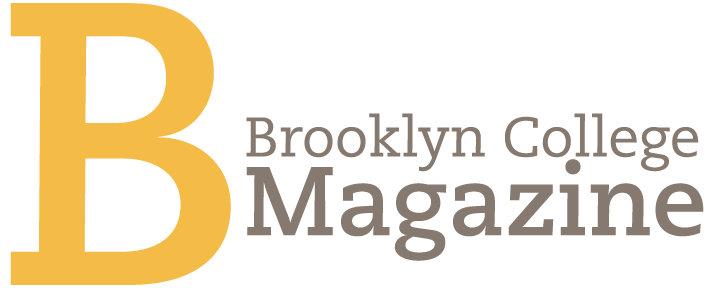A Lifetime of Learning

Tova Friedman ’60, a Polish-born Holocaust survivor holding a photograph of herself as a child with her mother, who also survived, 2019.
Credit: Associated Press.
“I love to study,” says Tova Friedman ’60 from her home in Highland Park, New Jersey. “I am going to be 84. I take a class every single morning. I have never had a time in my life, that I can remember, when I didn’t learn something I didn’t know before.”
When asked about surviving the Holocaust, she steers the conversation back to education and her life after coming to the United States. “There is so much information about me at that time that is already out there,” she says.
Indeed, Friedman has told her story many times, of the horrors of World War II before she moved with her family and settled in Brooklyn. Born in Poland in 1938, Friedman lived with her family in the town of Tomaszow Mazowiecki. Her last destination before liberation in January 1945 was Auschwitz.
“At five-and-one-half years old, my head was shaven and I was tattooed,” she says in her bio for the Auschwitz-Birkenau Memorial Foundation. “I survived hunger, disease, and a trip to the gas chamber.”
Friedman chronicled her experience in her forthcoming memoir, The Daughter of Auschwitz: My Story of Resilience, Survival and Hope (Hanover Square Press, 2022).
After the war, Friedman and her family came to New York City, where they first settled in Queens, then Brooklyn. She was 11.
“After you come from such a terrible situation, all of a sudden you could walk on the street, and nobody bothered you. And everyone was Jewish, which made it good,” she says.
In 1956, Friedman, a newly minted high school graduate, wanted very much to attend college. “But my parents were against it because they thought I should get married and have a family,” she says. “We lost everybody in the war. I told them that I would one day, but I needed to study. And Brooklyn College was free; I got my books secondhand with money I earned teaching Hebrew school on Sundays.”
The new freshman’s excitement about entering college was overshadowed by the death of her mother at age 45, six months into the school year. She took time off and returned. Friedman was not going to lose the opportunity to gain a college degree.
“Most young people my age went to work to support their parents,” she says. “Getting an education wasn’t available to everyone, it wasn’t something you could always do; it was a complete privilege, a gift. I was lucky.”
She soaked in the “atmosphere of academics,” as she called it, spending her time on campus engrossed in studying.
“I was so absorbed in my work that I didn’t hear the announcement in the library that it was closing, walked out of the restroom, and found myself in the pitch dark, locked in for the night,” she recalls, laughing at the memory.
After earning a degree in psychology, she immediately began fulfilling her promise to her parents. “I graduated on a Sunday and got married the following Saturday night,” says Friedman. She and her husband, Maier, would have four children and eight grandchildren. Their marriage would last 60 years until his passing in 2020.
Through marriage and children, Friedman’s education continued. She earned a master’s degree in literature at the City College of New York (CUNY), then taught in Israel for 10 years. Friedman settled on a career when she graduated with a master’s degree in social work from Rutgers University in New Brunswick, New Jersey. A former executive director of Jewish Family Service of Somerset, Warren, and Hunterdon Counties in Somerville, New Jersey, Friedman has worked for more than 20 years as a psychotherapist, working especially with immigrant populations and older adults.
And always, there is her love of learning: “It’s my go-to place,” she says. “When I’m unhappy or depressed, I take a class. Some people have shopping; I have classes.”
To today’s students, she says, “You are blessed if you can get an education. Take it seriously.”


